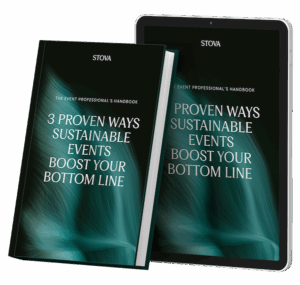On jam, wine tastings, and the event registration experience
December 18, 2018

A beautiful day, a great drive through the countryside to a small batch winery … what’s not to enjoy? I’m always game for a good wine tasting, but I definitely wasn’t expecting to find a direct parallel to current best practices using data in the corporate event registration process.
The wine steward began by asking some unusual questions; about my favorite sports, the type of cooking I enjoy, and other lifestyle points that at first seemed to have little to do with wine. Yet he was able to use this personal information to tailor a wine tasting experience that quickly drilled down to my ultimate vintage – without having to taste anything that turned me off.
Too much choice can be a bad thing for your event
What made this particular wine experience so successful? One word: personalization. My pours were selected specifically for me, thanks to the input (data) I was giving the steward. The people I was with had their own personally relevant experiences, and we all went home with lots of wine.
As modern consumers, we are becoming less interested in mass market experiences; we expect our data to be used effectively to curate our interactions with the brands we do business with. This kind of engaging customer experience is the promise of big data, and here it was paying off in real time on a small, intimate scale.
As I sipped, I was reminded how this holds true in the events industry, too, beginning with the event registration process. Attendees are looking for relevant information at their fingertips – without having to sort through the rest and taste a lot of bad wine. This level of event personalization is now mandatory, as brands find new ways to use their attendee data to deliver a “designed just for you” experience. Failing to do this impacts the bottom line metrics for your event, according to this article in the Hubb blog.
“When attendees are bombarded with 200 equally weighted session listings, they can experience overwhelm,” the article notes. It explains that providing recommendations based on what you know about the attendee will “increase the likelihood they’ll select sessions aligned with their needs and goals. And guess what? That will lead to more positive experiences consuming your event content.”
It all comes down to too much jam
The Hubb article references a thought-provoking study out of Columbia University that proved too much choice can be demotivating. The study found that “shoppers were one-tenth as likely to buy jam at a farmers’ market when they were presented with 24 options compared to 6,” per the Hubb article.
“Choice may be appealing in theory, but in reality humans can feel debilitated by choice and information overload.” ~ Hubb.me
Putting this into context in the events field, we must stop giving event attendees too many options – too many hotels to choose from, too many session descriptions to slog through, too many blind choices to make, too many types of wine to select from. Instead, event planners are using attendee data to make thoughtful suggestions and eliminate any clearly “wrong” choices in the registration process.
Finding relevance in your event registration solution
The majority of our customers these days have come to a big realization — that their former out-of-the-box software doesn’t have the capacity to create the kind of highly relevant and personalized experience their attendees expect.
For example, in a large scale corporate event you’ll undoubtedly have several different types of attendees. First there are the general attendees who want to go to every session — even if they are all at the same time. We know they can’t do that and it isn’t beneficial to let them, but they still try. Then there are day pass people who can only make it to your event for a focused period of time. You’ll also have some who want to continue their education or certification and are looking specifically for key sessions. Then there are all the salespeople who are there to network and that’s it. And of course the VIPs, whose time is too limited to tolerate a registration process that isn’t tailored to meet their needs.
Each of the above attendee types demand an experience that is driven by what they are looking to get from your event. From the questions you ask about why they are attending, to the sessions they may choose from, the hotel room blocks that are near a check-in location or other hub, or room blocks for those VIPs, a registration system needs to accommodate for all these variables and still provide metrics in one location.
A growing respect for personal data
In the wake of more and more data scandals and the push for GDPR compliance, everyone is becoming more protective of their personal data. That includes your event attendees. So it makes sense that brands are being more careful about how their attendee data is collected, stored and used, according to brand experience agency Cramer.
“From passive technologies, like beacons and facial recognition, to active technologies, like networking-focused apps and wearables, there are now more opportunities than ever to capture, integrate, and analyze attendee data,” the article notes.
At the same time, event planners are keenly aware of the need to keep user data secure. While your attendees expect a high degree of personalization, they also expect that you protect their personal information like it was your own.
“As two movements intersect, the next evolution in event technology — the next big conversation for event professionals — is simple: You want more data, attendees want more ownership,” the article notes.
When our event registration solutions can provide this kind of personal, relevant and secure experience, our attendees will feel “seen” in a very real way. Once they have a taste for it, they will be even more disappointed when it doesn’t happen – and this is fueling a massive personalization movement in the events industry. If your current event registration software isn’t up to the challenge of creating a personalized registration experience while keeping your attendee data highly safe and secure, talk to Stova. We’ll show you how bespoke registration solutions and support services can successfully use data to raise the bar on your events.
Whether your event is virtual, hybrid, or in-person, enhance your attendee’s journey with an event ecosystem built for your audience. Ready to walk through Stova's event technology solutions? Schedule some time with us today.


